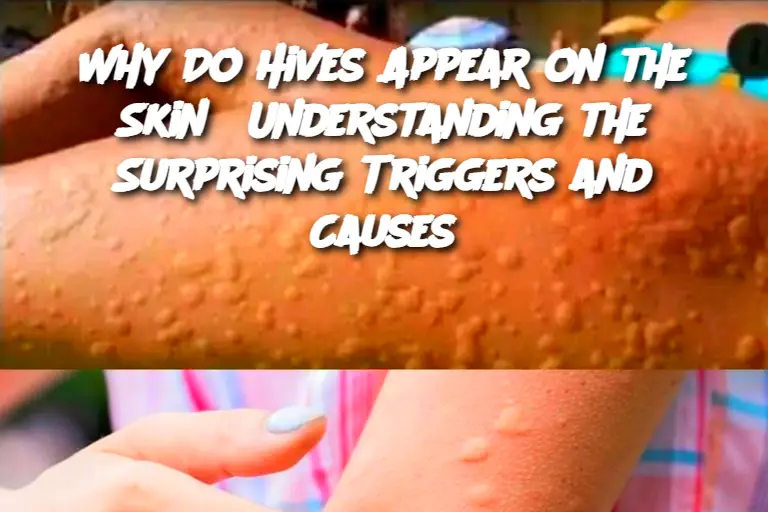ADVERTISEMENT
Chronic Urticaria
This type of hives lasts for more than six weeks and can occur daily or intermittently. Chronic urticaria may have an unknown cause or be linked to an autoimmune disorder.
Physical Urticaria
Physical urticaria is caused by physical stimuli, such as pressure on the skin, temperature extremes, or even sunlight. Common types include cold urticaria, heat urticaria, and solar urticaria.
Angioedema
This is a severe form of hives that affects deeper layers of the skin and can lead to swelling in areas such as the lips, eyes, and throat. It often occurs alongside hives and can be potentially life-threatening if it affects the throat.
Frequently Asked Questions
Q1: Can stress alone cause hives?
Yes, stress is a known trigger for hives. The body's stress response can cause the release of histamine, leading to skin reactions like hives.
Q2: Are there natural remedies for hives?
Some natural remedies, such as aloe vera gel, oatmeal baths, or chamomile tea, may help soothe the skin. However, it’s important to consult a healthcare provider before relying on natural remedies for chronic hives.
Q3: Can hives be a sign of a serious condition?
While most hives are benign and resolve on their own, persistent or severe hives, especially with other symptoms like difficulty breathing, should be evaluated by a healthcare professional. This could indicate an underlying condition such as an autoimmune disorder.
Q4: How can I tell if a food is causing my hives?
If you suspect food is causing your hives, try eliminating the suspected food from your diet for a period of time and then reintroduce it slowly. This can help identify the trigger. Always consult with a healthcare provider before making significant dietary changes.
Understanding the surprising factors that lead to hives is essential for managing and preventing outbreaks. While most hives are harmless, it’s important to pay attention to potential triggers and seek professional help when necessary. By staying proactive, you can reduce the frequency and intensity of hives and maintain your skin's health.
ADVERTISEMENT
